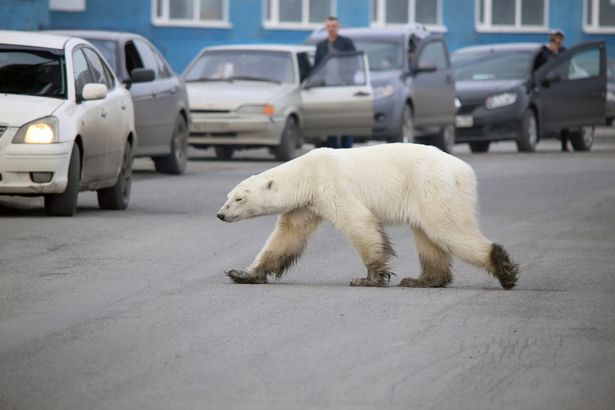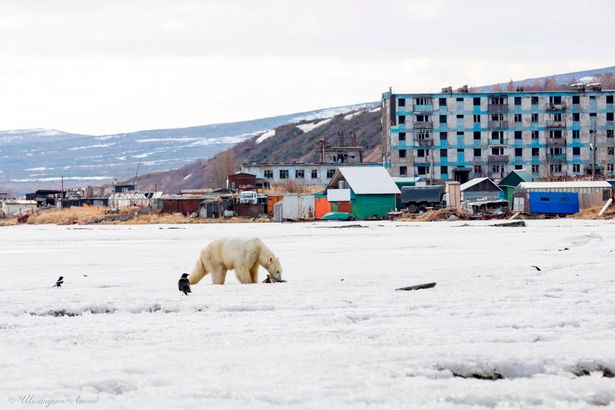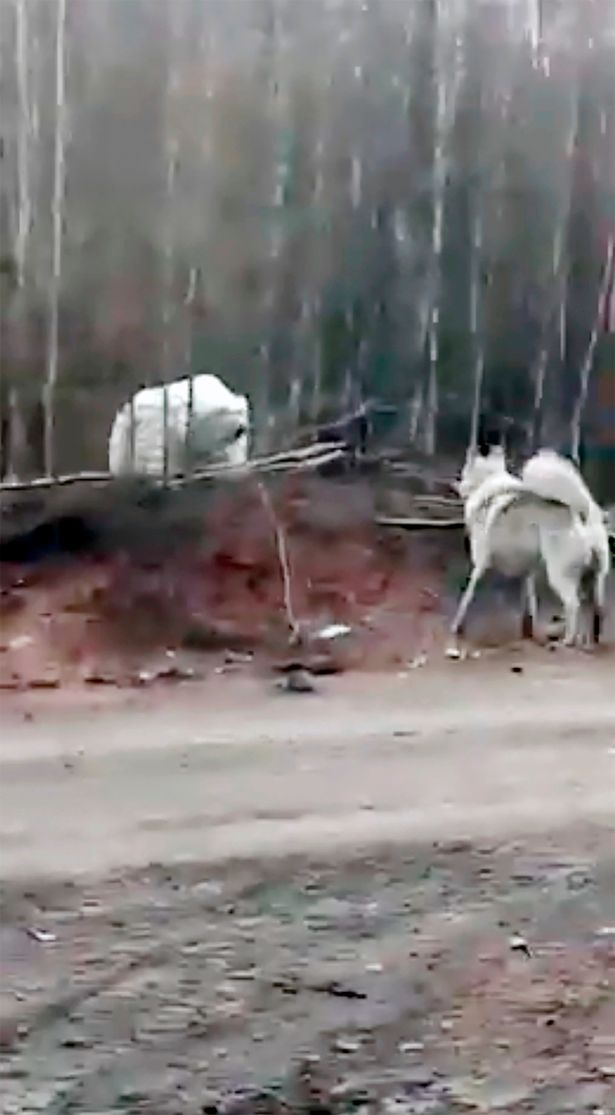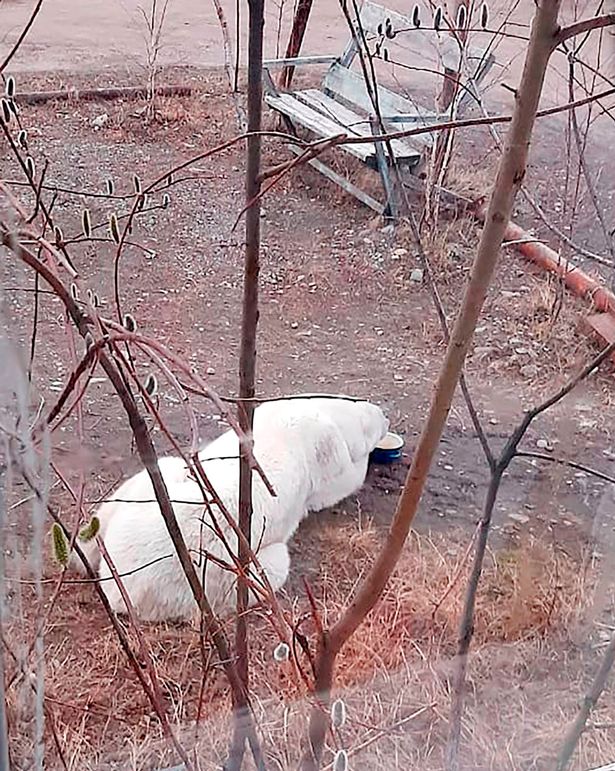A polar bear that ended up almost two thousand miles away from its natural habitat to hold a village under siege has finally been captured.
The animal, which was roaming around residents’ gardens and left them too frightened to go outside, is now being flown to a specialist veterinary centre to received treatment after becoming emaciated and exhausted.
Believed to be two years old, the female bear arrived at the village of Dzhebariki-Khayai in Russia weeks ago, after travelling south from its Arctic home and ending up on the shore of the Atlantic ocean before settling in the village.
It was first thought that she had travelled around 675 miles on foot, but experts now believe her epic trek covered 1,950 miles (2,500km) in total – the first ever recorded journey of its kind.

(Image: Zapolyarnaya Pravda/The Siberian Times)
Wildlife officers repeatedly tried to capture the wanderlust bear, and worried that she could be shot by hunters or starve to death. She had been surviving by stealing dog food and scraps at the village.
But this week the predator was finally caught emaciated and suffering from “extreme exhaustion”.
The bear was finally cornered in Dzhebariki-Khaya, which has a population of only 1,000, and flown by helicopter to a specialist vet in Yakutsk – the world’s coldest city – where she was found to have teeth problems and other medical concerns.

(Image: The Siberian Times)

(Image: Leonid Shelapugin)
She is now to be put on a seven-hour flight from deepest Siberia to Moscow to be examined by veterinary experts after Vladimir Putin’s top environmental official, Svetlana Radionova, head of watchdog Rosprirodnadzor, took personal charge of her fate.
Polar bears are a protected species in Russia.
“It is impossible to conduct a full (medical) survey of the polar bear in Yakutsk,” Ms Radionova said.
“In this regard, it was decided to take (the bear) to Moscow, where she will be given an accurate diagnosis and prescribed treatment.”

(Image: Yakutia’s BioResources directorate)
She hailed the polar adventurer’s amazing feat, saying: “This is the first recorded case when a bear walked 2,500 kilometres inland.”
Ilya Mordvintsev, senior researcher at the Severtsov Institute of Ecology and Evolution, part of the Russian Academy of Sciences, is a leading authority on the species.
He said the bear’s long walk “should be recognised as the first such case recorded by modern science.”
Russian experts are puzzled as to why the bear chose to leave its habitat and head inland, crossing the Arctic Circle on its odyssey which took three or four months out of the snow zone and deep into the territory of the brown bear.

(Image: SakhaLife)
The decision to move the bear six time zones west to Moscow was taken by a special section of Russia’s Commission on rare species of wild animals included in the Red Book.
Ms Radionova suggested the animal may have been held in captivity before being released into the wild, or could have been ill when it decided to travel.
“We cannot yet decide if we will be able to return the bear to the wild,” she said. “We will do everything possible,”
But she added that the chances were low because the young bear seemed not to have learned how to hunt for food in the Arctic Ocean.
Mr Mordvintsev said the “non-standard behaviour of the bear” was not understood, but it cast doubt on a successful release to the wild.

(Image: The Siberian Times)
Recent years have seen other curious behaviour by polar bears, which some experts claim is linked to climate change.
In 2019, an emaciated bear headed south from the Arctic to Arctic industrial city Norilsk where it scavenged food at a refuse tip.
The same year, a polar bear took a ride on a floating ice floe to the village of Tilichiki in Kamchatka region then wandered to the local police station “as if pleading for help”.
But the latest case is the most extraordinary so far.
A local woman in Dzhebariki-Khaya who had the bear in her garden for a while, said: “The beast came to our yard and laid down.
“It ate the dog’s food and just brazenly lay here.”
Hunters kept the bear at bay for around eight hours after it suddenly appeared in the middle of the night at the village and became aggressive, terrifying its inhabitants.

(Image: The Siberian Times)
Initially it was thought the bear’s adventure covered around 675 miles – representing a straight line from the shore of the Laptev Sea.
But now experts believe the bear’s journey originated further north perhaps on an Arctic island, then across frozen sea, and also that it zigzagged its way south.
The animal was spotted a few times as she went south, including near Batagai and then two weeks ago when she crept up on fisherman Andrey Rybakov, 41, on the banks of the Khandyga River.
The bear tried to steal his catch as the angler rushed into his Toyota Land Cruiser to take refuge.


